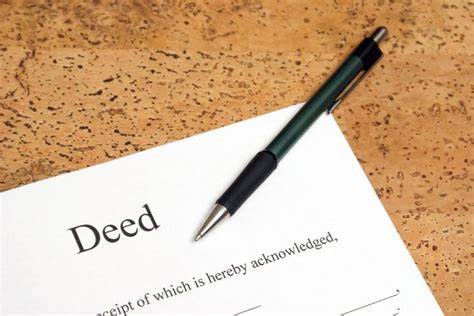A tax lien certificate is a legal document that grants the holder the right to recoup unpaid real estate taxes. Tax lien certificates may generate interest, making them a valuable financial tool for those who get them.
Before you add tax lien certificates to your portfolio, learn how they function and their advantages and disadvantages. You can also take professional advice from experts like jones tax relief to make the right decision for yourself. In this article, we will explore Tax Lien Certificates in detail.
But first,
What is an IRS levy?
A levy is a lawful seizure of your property to satisfy a tax debt. Levies and liens are not the same things. A lien is a legal claim placed on property to assure the payment of a tax obligation, while a levy takes control of the property to satisfy the tax bill. Although you can avoid the levy by paying your unpaid taxes. You can do the same by adopting payroll tax debt relief services to ease your paying back process.
When will the IRS levy be implemented?
If you do not pay your taxes (or make payment arrangements to satisfy your obligation), the IRS has the authority to seize any property or right to property in which you own or have an interest. For example, the IRS may levy property that you own but is held by someone else (such as your wages, retirement accounts, dividends, bank accounts, licenses, rental income, accounts receivables, the cash loan value of your life insurance, or commissions). In addition, the IRS may take and sell your property (such as your car, boat or house).
What is a Tax lien certificate, and how does it work?
A tax lien certificate is a lien placed on your property as a consequence of nonpayment of taxes. The municipality will issue a tax lien when your property taxes are due. When you pay your taxes on time, the lien is removed. If you do not pay your taxes or pay them on time, the municipality or county will auction off the tax lien certificate to an investor (s). The investor will then pay the taxes on behalf of the property tax owner.
Tax liens are only available for public auction in a few states. They are often auctioned off to the highest bidder who can offer one or more of the following:
- The lowest possible interest rate
- The most generous monetary offer
- When you acquire a tax lien certificate, you commit to paying the outstanding lien amount plus any interest or penalties owed.
The principal and interest amounts are paid to you by the state or municipality that issued the tax lien certificate when the property owner pays their property taxes.
What Is Tax Lien Investing?
Tax lien certificates allow you to own property without really owning it. You do not purchase a house or any other kind of property; instead, you purchase tax lien certificates. Instead of purchasing real estate, you purchase the right to pay property taxes and are compensated by the seller when it matures. People engage in tax liens mostly because they think they will generate large returns over time.
What advantages may acquiring Tax Lien Certificates provide?
Do your research before you begin acquiring Tax Lien Certificates. Having the assistance of a Certified Tax Lien Professional to help you through the procedure offers another layer of security.
The following are some of the advantages of obtaining Tax Lien Certificates:
- Low initial investment: Requires significantly less cash than other investment options.
- Return: Unlike other investment strategies that rely on market speculation, tax liens often give a very consistent rate of return.
- Lump-sum payments: When your tax lien investment matures, you will get a predetermined payment amount, making it easy to predict how much you will earn. Additionally, since the price is not a recurring residual, you accept all your returns at once.
How Does Investing in Tax Lien Certificates Work?
1. A Tax Lien Certificate is issued by the municipality.
Local governments levy property taxes to help support government services and activities. If a homeowner fails to pay their property taxes, the provincial government attaches a tax lien certificate to their property. This certificate details the total amount of taxes owed, as well as any applicable interest or penalties. If a homeowner fails to pay their tax obligation, the government may foreclose on their house.
2. The tax lien certificate is sold at auction.
In 28 states, the government may sell tax lien certificates to private investors, enabling them to swiftly recoup their losses. The certificate is often sold to the highest bidder at a tax lien auction.
3. Bids on the tax lien certificate are submitted by investors.
Bids may be made based on the cash amount someone is prepared to pay for the certificate or the interest rate they are ready to take, depending on the auction. The highest monetary bidder receives a certificate. In this instance, the lowest bidder receives the interest rate.
Remember that the lower the interest rate on a tax lien certificate you bid, the lesser your potential profit. Bidding wars for tax liens may lower the interest rate and hence the profit.
4. A successful investor purchases the property
The tax lien certificate is awarded to the highest bidder at a tax lien auction. Technically, they no longer own the property. However, it provides them the option of taking the property via foreclosure or obtaining recompense when the homeowner finally pays their tax due.
5. The investor pays all applicable taxes.
If you win a tax lien auction, you must pay the whole tax obligation, including any interest or penalties owing. The homeowner will then have a certain number of days until the redemption date to pay the new investor or risk foreclosure.
6. Repayment or Waiver
You have two alternatives when purchasing a tax lien certificate: either the homeowner will pay their property taxes, or they will not. You will regain your initial investment plus the interest rate you purchased at the auction if the homeowner pays their property taxes.
The foreclosure process may commence if the homeowner fails to pay their property taxes. After receiving the tax lien, you may initiate foreclosure procedures in your state. You risk losing your money if you do nothing. It’s important to remember that situations seldom escalate. Before the foreclosure process starts, most homeowners pay off their tax arrears.
Conclusion
Tax lien certificates are an excellent alternative choice for investors. They generate good, non-speculative returns when you sell the certificate to another investor. Most investors purchase tax lien certificates to wait out and sell it at a substantial profit while someone else pays the taxes or forecloses property when the liens mature.


















